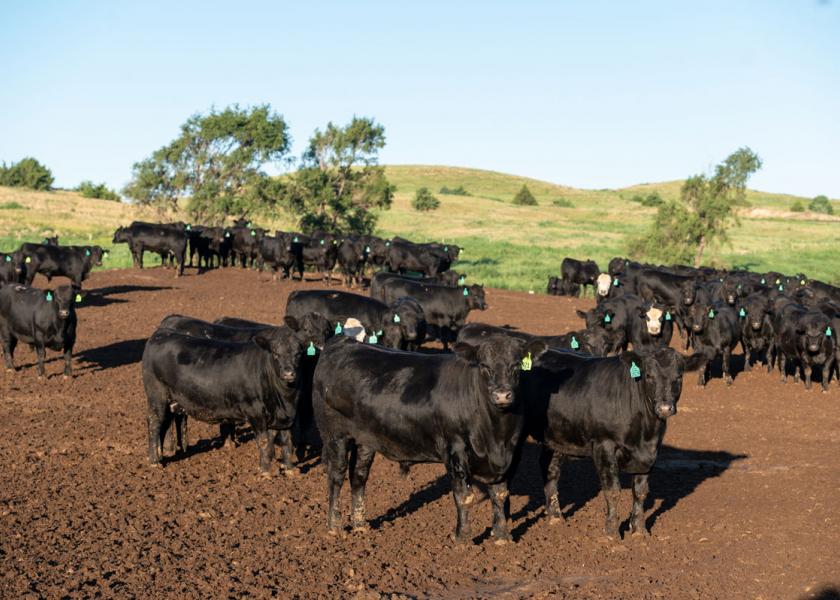Cornett: Insights From 'A Yankee' Feeder

News flash. News flash!
There are two sides to this mandated cash trade argument, and some of those farmer-feeders can make a pretty hard-to-argue with argument.
You might recall, a few days ago, Drovers granted me some space* to ponder about Sen. Grassley’s Cattle Price Discovery and Transparency Act which would, among other things, mandate that beef packers procure a (perhaps tweakable) portion of cattle based on cash negotiations and pick them up within 14 days.
And I asked for input from people who may know things I don’t, me having read not much besides Face Book and ear tags the last decade or so.
Got some. Want more.**
But there was the farmer-feeder with a name I won’t tell you, from a midwestern state I won’t tell you. He was articulate and experienced and wise enough to ask for anonymity. (Your more prudent cattle feeders do not like antagonizing packer buyers who can accidently lose your phone number, if they so choose.) So, he being not from Texas, I’ll refer to him as A Yankee.
A Yankee’s operation goes way back in the generations. Always had some cows, but mostly fed hogs until—you guessed it—the great pig market implosion suddenly turned the hog market into one big commercial operation. Now he feeds pigs on contract. Yeah. Independent cattle feeder and contract pig grower. See where this is going?
He has cows and feeds his own cattle. Feeds his own corn. He sells on the grid and knows how his cattle perform at the plant. He thinks more cash trade would help the market. And he says mandates are ok if that’s what it takes. But he says the part of the bill he likes the most is that 14-day pickup window.
“I’m still custom feeding hogs, and it has allowed me to do things I wouldn’t have been able to do otherwise,” he says, “but it doesn’t necessarily mean I agree with the way that industry has gone. And that’s the main reason I want to voice my opinion on the cattle deal because I don’t want to see it go the same way.”
He says he has only one nearby member of the big four. “So, say the market is $1.40. I’ll call, say on a Monday, and say ‘hey I’ve got one truckload or two truckloads here that I think are ready.’ They’ll go, ‘OK, we’ll let you know when we start bidding’.”
When the buyer calls mid-week they’ll “throw a grid at you and when you figure it, it’s like $1.35 when I know the market is $1.40. So, I’ll call back and say ‘I don’t think I want to take that.’ And they’ll say ‘ok, we’ll let you know what we’re offering next week.’ And next week, you call and they say, ‘no we’re bought up for the week.’ Then the next week, maybe the market has gone up to $1.41. And you call back and they still offer the $1.35.”
“It’s take it or leave it and they don’t care either way.”
And, he says, the offer stays at $1.35 until “the (yield grade) 4’s and 5’s kill you.”
“A few times like that,” says A Yankee, “and you learn you better take the first bid. They teach you. That’s where your weak sisters come from.”
Meanwhile, the packers are killing the “captive supplies” to keep their plants busy and doing so at prices largely based on the prices A Yankee and his fellows are trying to negotiate. You can see the man’s argument.
So, what he does now is ship his cattle—fat cattle, mind you—to a regional processor several hundred miles away. He says the extra shrink is partially offset by the higher yield and he says “it’s working okay.”
Or at least better than he can get from his only nearby buyer.
So, A Yankee is one of the guys Sen. Grassley is trying to keep in business and why he sounds so “get off my porch” curmudgeony when he says “It’s not fair” for him to have to compete with the commercial feeders with contract “captive supplies” in the Great Plains.
I have not heard from, nor know, anybody who doesn’t think the business needs more negotiated trades. Think through how A Yankee’s problem affects everything. That packer he’s trying to nudge from $1.35 to $1.40 is buying lots of cattle on that negotiated price. So, if he gives A Yankee a extra $5, he’s out an extra $5 on lots of contract cattle, also.
Well, we’re not going to settle this here, are we?
It sounds like Drovers is going let me fool around with this a bit more. And I hope so because A Yankee had more thoughts than I can regurgitate at once. So, I’d still like to hear from folks with something to add. Send me your thoughts: Scornett9163@yahoo.com
*if “space” is the word for internet stuff, I mean. Speaking as a guy who spent 50 years trying to fit what he regarded as very big thoughts into very small spaces, this no limits is quite the challenge. I mean it would be theoretically possible for me to write about all the aches and pains of a man my age. I mean, that is why the word “infinity” was added to the vocabulary.
**I do not need to be told the packer oligopoly are despicable. Got my own unwaverable opinion on that. I suspect the JBS settlement is the tip of the iceberg and I suspect the lawyers that got the settlement, along with DOJ and maybe Congress, will soon give us a high resolution, 3D sonar view of what lurks below.







